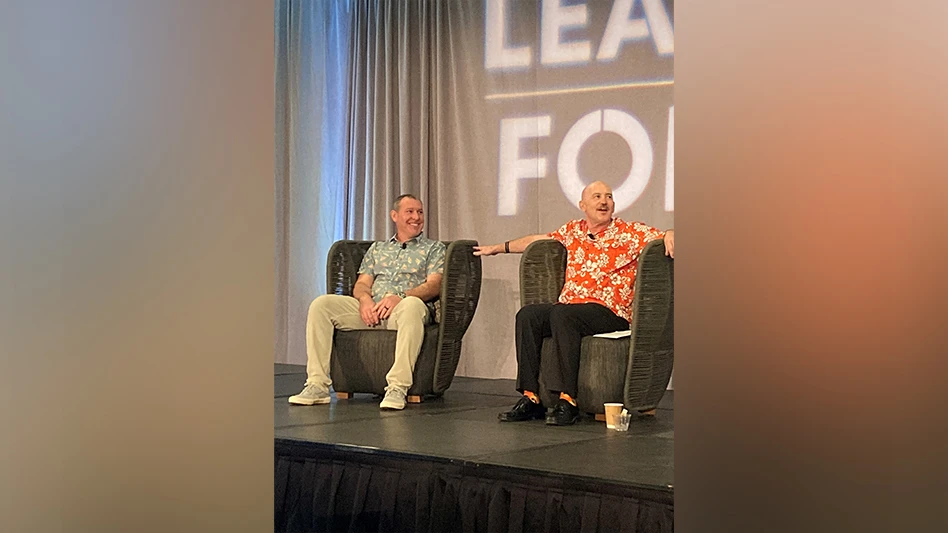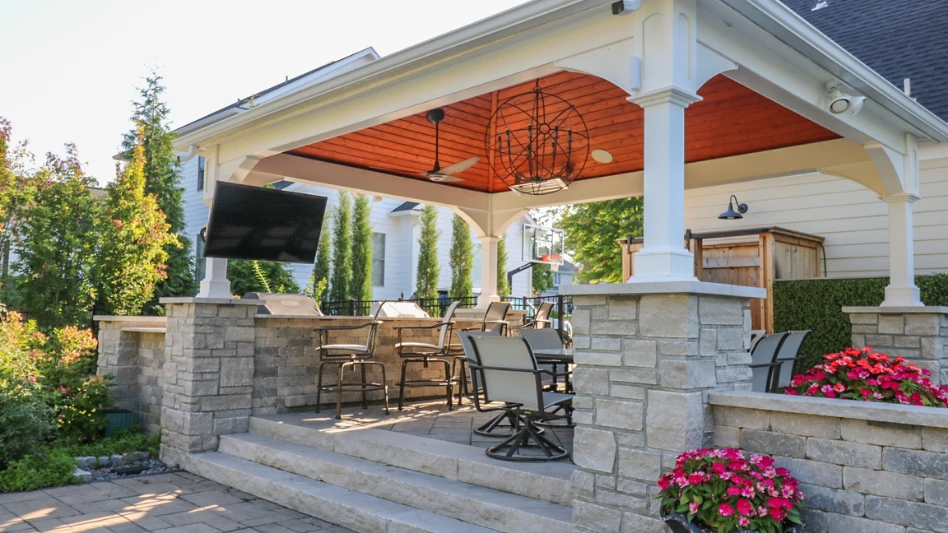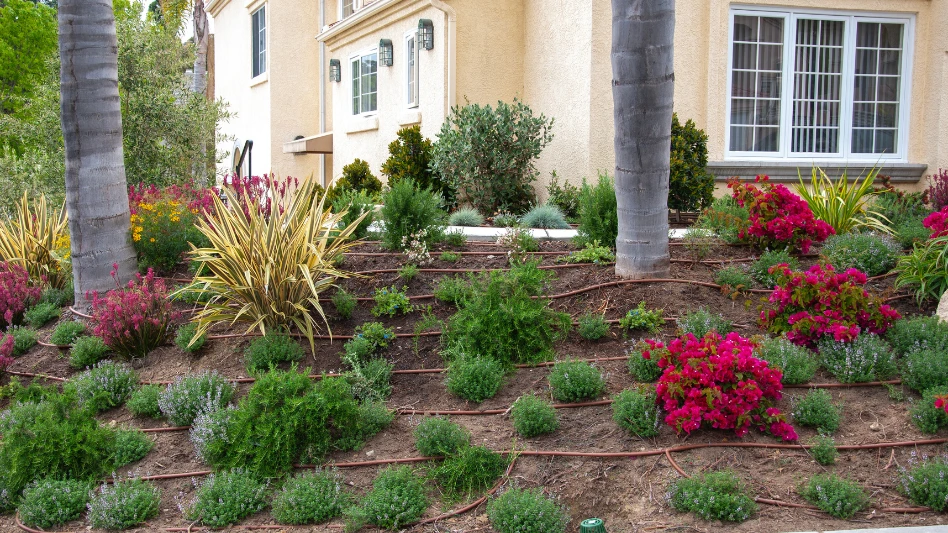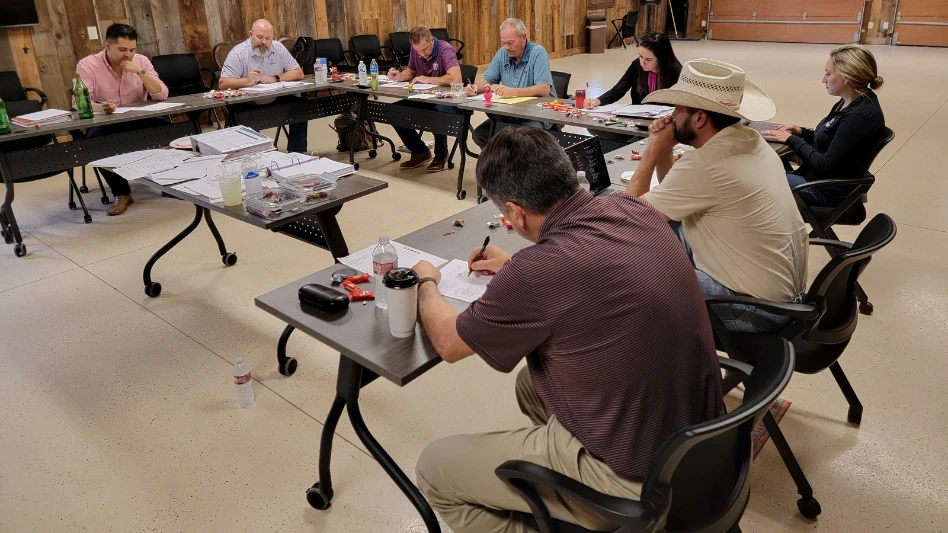
With more and more communities looking to eliminate gas-powered equipment, along with drought and water conservation efforts becoming more commonplace, green industry companies across the country are being forced to look into more sustainable practices.
But, it doesn’t have to be such a dramatic change to a company. That’s what Bob Grover, president of Pacific Landscape Management, and Jeff Rossen, founder of Rossen Landscape, said when they discussed sustainability at NALP’s annual Leaders Forum held recently in Maui, Hawaii.
The pair both agreed that slow, thorough, sustainable changes now can keep a company from being overwhelmed when these environmental measures become more mandated.
Grover recognizes that while landscaping companies can do a lot of good for the communities they serve, it’s irresponsible to think they have no impact on the environment.
“Sustainability has been a bigger issue in Oregon, and the West Coast in general, a lot longer,” he said. “In reality, a lot of the things we do in our business have some negative impact on the environment.”
Grover said for years now, Pacific Landscape Management has been looking to make small changes to lessen it’s carbon footprint and help be good stewards of the environment.
“At first I thought all this was going to cost more, so I asked customers to pay 5% more,” Grover said. “But then they wanted to know what we can do without costing them more.”
That’s when Grover started to look inside at what the company was doing and what could be curbed.
“We took a look at the products we used… are there ones we can use less of? And we looked at our fleet and tried to reduce the amount of fuel we were using,” he said. “We also looked at water conservation and started to use less water. It’s really been a mission.”
Now, the company is focused on upgrading irrigation systems, weather-based irrigation, pressure regulation, drip irrigation, hydro-zoning and other sustainable practices.
“You need to start doing something,” Grover said. “Just do something a little bit better every year.”
He added that he knows for most companies making the switch to 100% organic or completely battery-powered isn’t feasible and unrealistic. Instead, he said don’t have that all or nothing approach just find avenues to make small changes that add value.
“Water conservation, I think, is where we’ve made the most in-roads,” he said. “For us, finding places where we can attach a sustainable mission and find people a way to save money is great. Half of our water conservation work is looking, evaluating and changing the landscape.”
Grover also told attendees that it’s important for the green industry to start coming together to define sustainability now, or else others (government entities) will begin defining it for them and companies won’t like the new definitions.
Rossen agreed with Grover in warning not to try to go completely organic or completely battery-powered all at once. He said he did it as his business and the attempts failed miserably.
“We were going to go 100% organic… and as we were working, these herbicides weren’t working, and we’re going back three to four times to get the results…so, we immediately back-stepped and got the weeds under control,” Rossen recalled. “Now, instead of going 100% organic we introduced this ‘lite’ approach, where we’re 50% organic.”
Rossen said he knows the fully-organic products costs twice as much and do not work as well, but he says there is still a desire for it in his DC-market. Therefore, it’s still an option for those willing to pay for it.
“They understand it’ll cost more,” he says of organic customers.
Rossen said he had the same experience when trying to convert to 100% battery-powered for small equipment. The trimmers and edgers worked out great, but he said the battery backpack blowers were too heavy and inefficient for crews.
So, now the company is OK with being 2/3 battery-powered with its smaller equipment.
“Don’t go out there trying to be everything for everybody,” Rossen said. “You’ll fail yourself and the client, too.”
Rossen added that one great way to start small with sustainability practices is to focus highly on efficiency.
“The low-hanging fruit is in the efficiency,” he said.
Rossen added that performing route optimization is essentially free, and can help businesses save greatly on fuel costs. Reducing call backs is also another way to work harder and more efficiently.
“Call backs are a waste of time and resources,” Rossen noted. “You’re working against yourself.”
Latest from Lawn & Landscape
- Benefits for the brain
- Fisk Lawnscapes explains how and why employees receive its Therapy Benefit
- LMN partners with Attentive.ai
- Get to know the generations working for you
- Addressing addiction in landscaping
- Fairway expands national footprint with 6 acquisitions
- Graze Robotics opens new headquarters in Plano, Texas
- Addiction in the green industry





